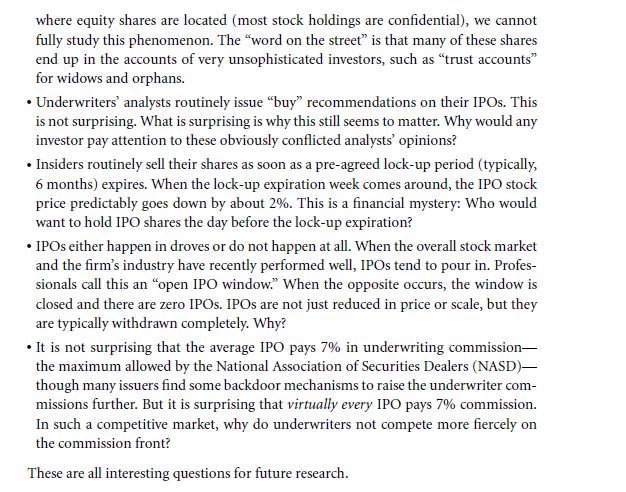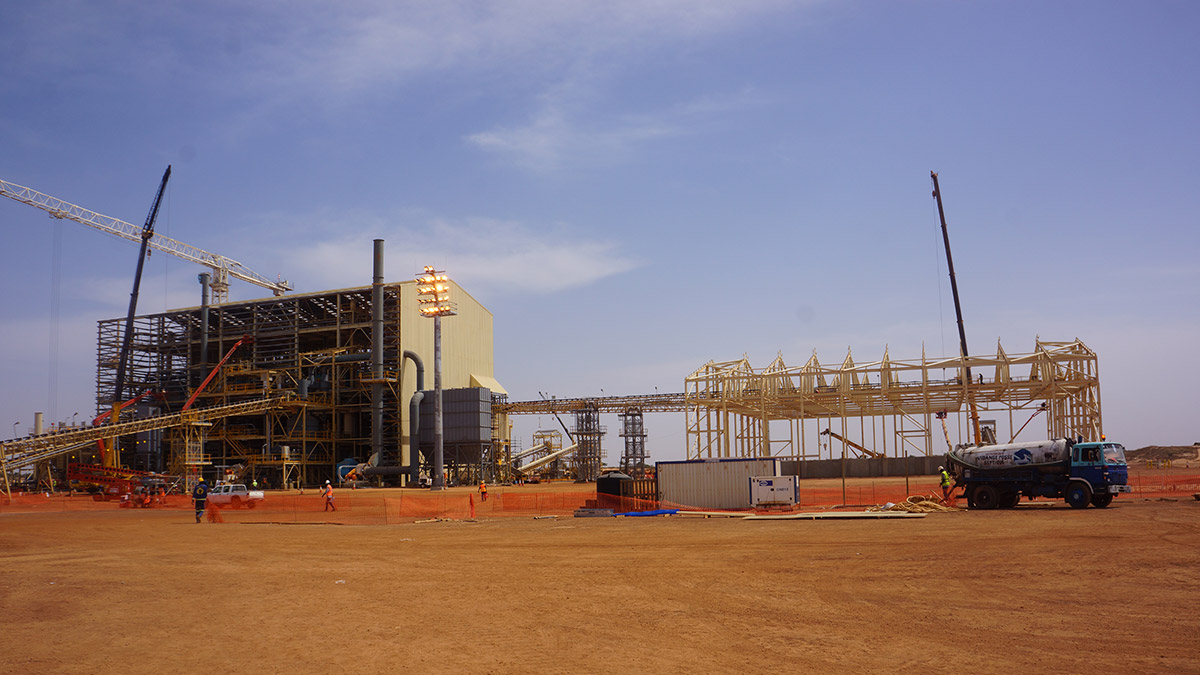The Impact Of Tariffs On Initial Public Offerings (IPOs)

Table of Contents
Increased Input Costs and Reduced Profitability
Tariffs increase the cost of imported goods, directly affecting companies' production costs and ultimately reducing profitability. This directly impacts a company's attractiveness to investors who scrutinize profit margins and growth potential. Higher input costs, driven by tariffs, squeeze profit margins, making it harder for companies to demonstrate the strong financial performance that is usually expected during an IPO.
- Higher input costs lead to lower profit margins: The increased cost of raw materials, components, or finished goods imported from countries subject to tariffs translates to a lower profit margin on each unit sold. This erosion of profitability is a major concern for investors evaluating the long-term viability of a company.
- Reduced competitiveness in the global market: Companies facing increased input costs due to tariffs may find themselves less competitive in the global market, particularly if their competitors operate in countries without similar tariff burdens. This loss of competitiveness can negatively affect revenue projections.
- Potential for decreased revenue and slower growth: The combined effect of lower profit margins and reduced competitiveness can lead to decreased revenue and slower growth, making the IPO less attractive to investors seeking strong returns.
- Negative impact on earnings projections presented in IPO documentation: Accurate forecasting of future earnings is crucial for successful IPOs. The uncertainty introduced by tariffs makes accurate projections significantly more challenging and may lead to lower valuations.
Related Keywords: Tariff impact on profitability, input cost inflation, IPO valuation, margin compression, cost of goods sold.
Supply Chain Disruptions and Operational Challenges
Tariffs can disrupt global supply chains, leading to delays, shortages, and increased uncertainty for businesses considering an IPO. The complexities of navigating international trade are magnified by the introduction of tariffs, creating operational headaches and potentially jeopardizing the timing and success of an IPO.
- Difficulty in sourcing raw materials and components: Tariffs can make it significantly more expensive or even impossible to source essential raw materials and components from preferred suppliers, forcing companies to seek more expensive alternatives or face production delays.
- Increased logistical complexities and costs: Navigating tariffs often involves complex documentation, customs procedures, and potential delays at ports of entry. These increased logistical complexities add to the overall cost and administrative burden of importing goods.
- Potential for production delays and missed deadlines: Supply chain disruptions caused by tariffs can easily lead to production delays, impacting a company's ability to meet delivery commitments and potentially damaging its reputation.
- Negative impact on investor confidence regarding operational efficiency: Investors look for companies with robust and efficient operations. Supply chain disruptions caused by tariffs can raise concerns about the company's ability to manage its operations effectively.
Related Keywords: Supply chain disruptions, global trade, IPO risk assessment, geopolitical risk, tariff barriers, logistics costs.
Impact on Investor Sentiment and Market Volatility
Uncertainty surrounding tariffs creates market volatility, influencing investor sentiment and potentially impacting the success of IPOs. The instability introduced by tariffs makes it difficult to predict future market conditions, increasing the risk for both companies and investors.
- Reduced investor appetite for risky investments during periods of tariff uncertainty: When there is uncertainty surrounding trade policy, investors tend to be more risk-averse, reducing their appetite for IPOs which are inherently riskier than established companies.
- Increased volatility in stock prices, affecting IPO pricing and performance: The uncertainty surrounding tariffs can translate to increased volatility in overall stock markets, making it challenging to determine the appropriate IPO pricing and potentially impacting the post-IPO performance of the company's shares.
- Potential for delayed or canceled IPOs due to unfavorable market conditions: Companies might postpone or even cancel their IPOs if market conditions become too unfavorable due to tariff uncertainty or resulting market volatility.
- Difficulty in accurately predicting future performance in a volatile market: The increased volatility makes it harder for both companies and investors to accurately predict future performance, adding another layer of risk to the IPO process.
Related Keywords: Investor confidence, market volatility, IPO pricing, tariff uncertainty, risk assessment, market sentiment.
Sector-Specific Impacts of Tariffs on IPOs
The impact of tariffs varies significantly across sectors, with some industries facing a far more substantial impact than others. Industries heavily reliant on imported goods are naturally more vulnerable, while sectors with robust domestic supply chains are less affected.
- Industries heavily reliant on imported goods are more susceptible to tariff increases: Industries such as manufacturing, which relies on imported components, and consumer goods, which often rely on imported raw materials, are particularly sensitive to changes in tariff rates.
- Sectors with strong domestic supply chains may be less affected: Companies operating in sectors with well-established domestic supply chains are less vulnerable to the effects of tariffs.
- Analysis of sector-specific impact requires careful consideration of import reliance and domestic competition: A detailed analysis of a specific company’s import dependence and the competitive landscape within its sector is crucial to fully understand the potential impact of tariffs on its IPO.
Related Keywords: Sectoral impact of tariffs, import dependence, IPO sector analysis, industry-specific risks, comparative advantage.
Conclusion
Tariffs present significant challenges for companies considering an IPO. Increased input costs, supply chain disruptions, and investor uncertainty all contribute to a more complex and risky environment for businesses entering the public market. Understanding these impacts is crucial for both companies and investors. Successfully navigating the complexities of tariffs and IPOs requires careful planning and a thorough understanding of the potential impacts on profitability, supply chains, and investor sentiment.
Call to Action: For a thorough analysis of how tariffs might affect your IPO strategy, consult with experienced financial advisors who understand the intricacies of tariffs and IPOs. Successfully navigating the complexities of tariffs and IPOs requires careful planning and expert guidance.

Featured Posts
-
 Muzikos Protestu Ir Saunu Savaite Eurovizijos Atidarymo Ceremonija Bazelyje
May 14, 2025
Muzikos Protestu Ir Saunu Savaite Eurovizijos Atidarymo Ceremonija Bazelyje
May 14, 2025 -
 Shohei Ohtanis Historic 6 Run 9th Leads Dodgers To Victory
May 14, 2025
Shohei Ohtanis Historic 6 Run 9th Leads Dodgers To Victory
May 14, 2025 -
 Federerov Povratak Zhelja Za Punim Stadionima I Publikom
May 14, 2025
Federerov Povratak Zhelja Za Punim Stadionima I Publikom
May 14, 2025 -
 Eramet Grande Cote Transparence Et Gestion Des Plaintes Dans Sa Communication Responsable
May 14, 2025
Eramet Grande Cote Transparence Et Gestion Des Plaintes Dans Sa Communication Responsable
May 14, 2025 -
 Reaction To Tommy Furys Update Focusing On Molly Mae Hague
May 14, 2025
Reaction To Tommy Furys Update Focusing On Molly Mae Hague
May 14, 2025
